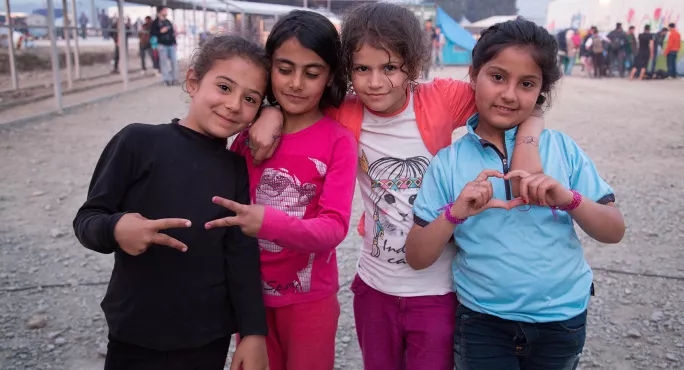- Home
- ‘Children have a right to education - regardless of immigration status’
‘Children have a right to education - regardless of immigration status’

In 2017, Unicef reported that children and families were moving in “unprecedented numbers, creating the highest number of refugee children since World War II”. This followed its reports a year earlier which showed that almost 50 million children had been displaced from their homes (as of 2015), with more than half (28 million) fleeing violence and insecurity.
Children who travel unaccompanied or have been separated from their primary caregivers face terrible risks. They are more vulnerable to trafficking, smuggling, kidnapping, rape, torture, drowning at sea, severe ill health and even murder. They face discrimination and denial of rights. They are deprived of years of education, are unable to access health care, and are imprisoned solely due to their migration status. As a result, children lose their trust and belief in those adults who are supposed to protect them - teachers included.
An asylum seeker’s story: ‘A group of schoolchildren showed me that Scotland is my home’
Child refugees: ‘Teachers need more help to support refugee children’
BME teachers: ‘Race falling through the cracks in schools’
Frontline workers, such as teachers and policymakers, across the world hold joint responsibility to work together across different services and across borders to ensure unaccompanied and separated children receive the care, protection and services they so badly need. To support such a response, an international taskforce commissioned the Centre for Excellence for Children’s Care and Protection (Celcis) at the University of Strathclyde to produce a free online course on FutureLearn, “Caring for Children Moving Alone: Protecting unaccompanied and separated children”. It is ideal for those working in education who may come into contact and be responsible for the care and support of separated children.
The problems faced by refugee children
The course features information on why children become unaccompanied and separated, their experiences while on the move, and how this may affect their behaviour. It also helps to explain how children’s experiences can impact their willingness to trust.
As children move across countries, governments must respond effectively to make sure their rights are realised and that unaccompanied and separated children are granted the same rights as other children. All migrant children have a right to education and it is important to coordinate and cooperate across sectors.
This includes sharing information on the individual circumstances of unaccompanied or separated children in care. Teachers should know whether a separated child is being “looked after” and in local authority residential or foster care. In such situations, it is important that teachers - particularly those with the role of “designated manager for looked-after children” - are fully aware of the placement arrangements. They should also know a child’s carers, legal guardians and any key supporting professionals, and ensure that the child’s educational progress is given priority in care-planning arrangements.
The importance of children’s rights being realised, regardless of their immigration status, is also covered in the course, particularly with regards to how this should not affect a child’s right to access education or health and care services. However, this requires teachers and others to make themselves aware of a child or young person’s immigration status and subsequent changes to this status - as a result of reaching an 18th birthday, for example. This should be taken into consideration when planning education and post-school opportunities.
It is important that those in contact with unaccompanied and separated children are aware of the traumatic experiences they may have faced and how this can affect their willingness and ability to respond to support. They need to understand, for example, how these children may react in a classroom and any difficulties they may have in integrating into society. It is necessary to appreciate the additional care and support needed by unaccompanied and separated children; support which will allow them to participate in everyday activities that for national children are just part of daily lives.
That aside, it’s worth reiterating the most important message: children have a right to education - regardless of immigration status.
Professor Jennifer Davidson is executive director of Celcis (Centre for Excellence for Children’s Care and Protection) and the Institute for Inspiring Children’s Futures, at the University of Strathclyde. Dr Chrissie Gale is international lead for Celcis
Keep reading for just £1 per month
You've reached your limit of free articles this month. Subscribe for £1 per month for three months and get:
- Unlimited access to all Tes magazine content
- Exclusive subscriber-only stories
- Award-winning email newsletters